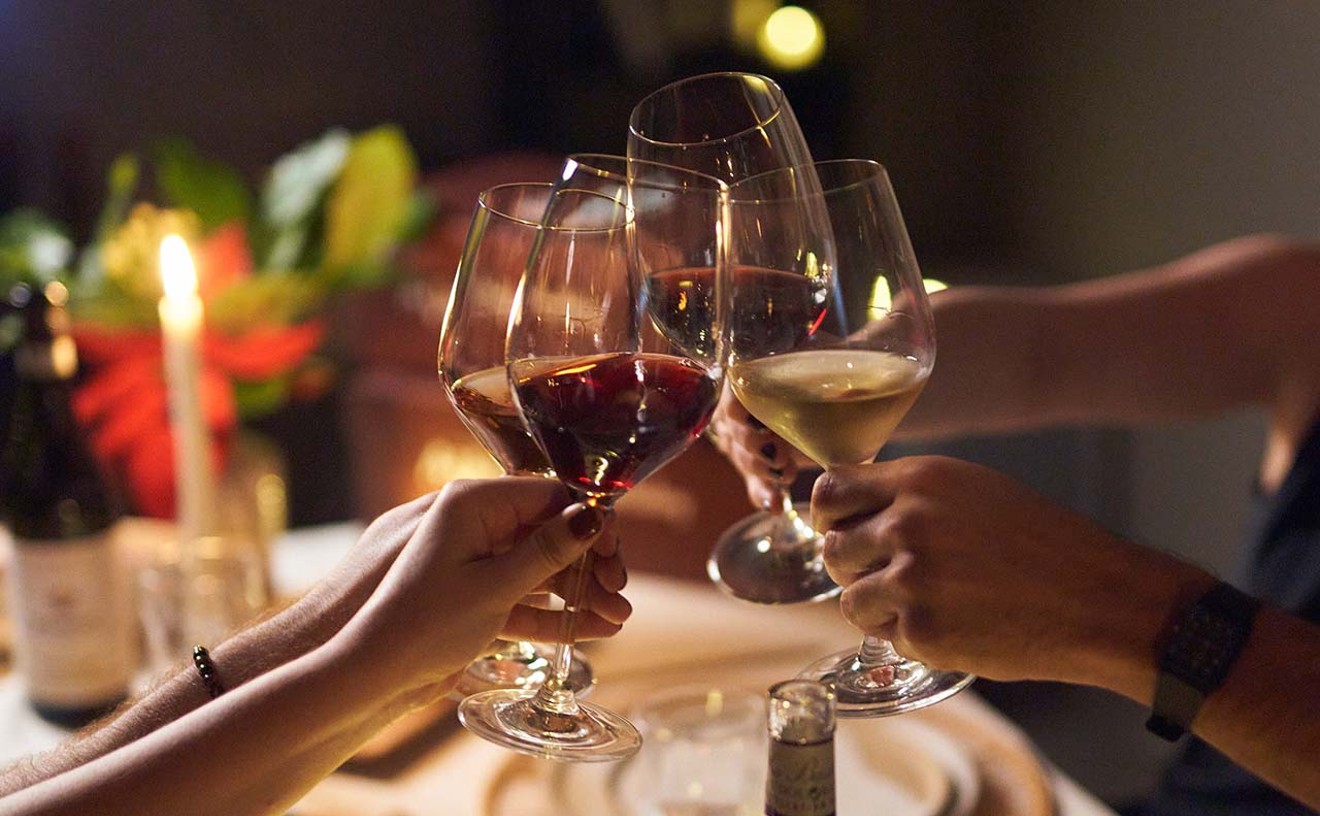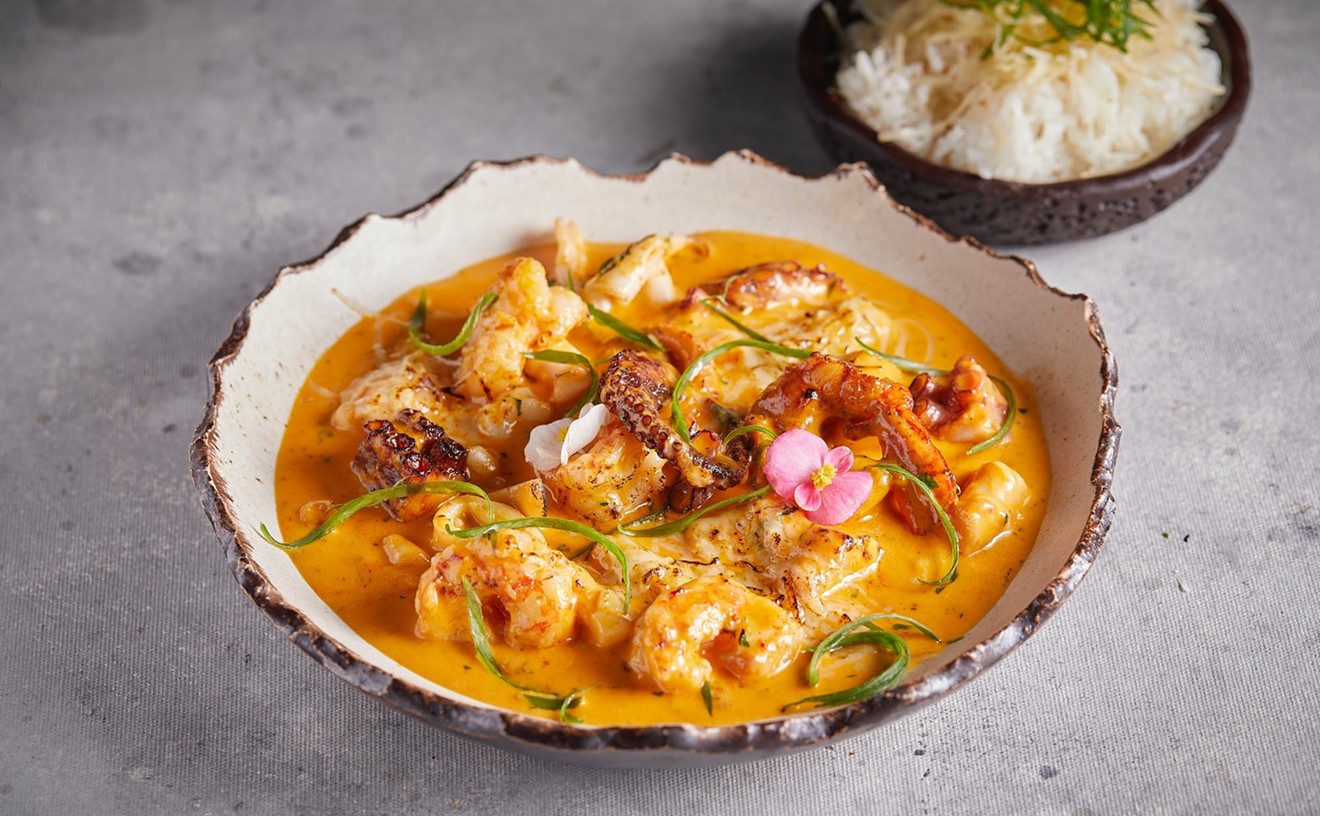Though Dr. Jessica Harris is well known as a tenured professor and the author of more than 10 cookbooks, including A Kwanzaa Keepsake and The Africa Cookbook, for her latest creation, High on the Hog: A Culinary Journey from Africa to America (Bloomsbury, $26), the culinary historian went into detailed storytelling mode. Inside the more than 300-page novel are a smattering of recipes and photos, but most people will pick it up to finally get schooled about the roots of African American cuisine and the indelible mark left by famous and obscure chefs who influenced modern American and Caribbean food.
Harris will be appearing at the Miami International Book Fair International's Presentation Pavillion this Saturday, November 19 at 11 a.m. along with chef/authors Andrew Carmellini and Gabrielle Hamilton. Admission is free. (Watch Short Order for the other author interviews, too, coming this week.) In the meantime, here's a taste of Dr. Harris' latest creation:
New Times: Is this your first Miami Book Fair?
Harris: Actually, no. It's my second, or maybe even third. I haven't been recently. I used to do Cookbook Row when they had that.
Know which excerpt you'll be reading?
I'm not sure. I may jump around a little bit. I like to read a bit on the definition of African Americans and food. Certainly Hercules and Hemmings [Editor's note: They were the enslaved chefs of Presidents Washington and Jefferson]. I might read something about Estebanico [Another Editor's note: Estebanico Dorantes is known as the first African to step ashore on the North American continent. And guess where he planted his foot? Florida. Yep.] I do a different variation each time to keep it fresh.
Was writing this book difficult, emotionally speaking? There were times I was nearly brought to tears reading about the slaves' plights.
It's stuff that we don't know that we need to know. The more you know the more you can handle it. It doesn't necessarily make sense but it's in context. Knowing it makes you different.
What's one thing you were most surprised to learn?
That I don't know anything. Absolutely, virtually every chapter had one of those I-didn't-know-that-moments. We know so little about the history of African Americans. We have a country-wide lack of historical knowledge. It's something I had to do about my culture.
What's Florida's role in African American culinary history?
The first black person we know of by name entered through Florida. The whole notion of [Black] Seminoles is amazing. Florida's been so fascinating in its own history because it's Spanish and then Southern Florida recently developed, then it returns to Spanish West Indes. You're gonna start looking at Conchy Joe's in the Keys, and the culinary links with the Bahamas and [Good]bread Alley [in Overtown], where the Bahamians lived when they first came. Then you get Orlando and that area, then Eatonville and Zora Neale Hurston... Florida has deep and rich African American history.
But I didn't see any mentions of Florida restaurants in your book.
Well, the question becomes, is Florida "the South?" It's an unresolved question. It occupies that same spot as Louisiana. Although when you look in the kitchen at Joe's Stone Crab you see a lot of brown faces back there--and they're not all Cuban.
Where do you eat when you come to Miami? Any local favorites?
I adore Cindy [Hutson] and Delius at Ortanique: I'll be there for sure. I adored Delius' mother. That's my must-go place.
Which of the recipes in High on the Hog is your favorite and why?
Okay, which is your favorite child and why? The recipes in the book are a combination of archival recipes of the period and some of my go-tos from a variety of books. There's my mother's fried chicken--I love it. The chicken yassa has always been one of my good luck recipes. I try to sneak that into just about every book.
Who do you think should read this book and why?
I honestly do think everyone should read it. It's not just a book for African Americans. I have been deeply honored and pleased that it's been adopted for use by an eighth grade class in New Orleans. It's been put on the syllabus for registered dieticians at a college in Chicago. It changes the way people think about food. It brings food history to life in another kind of way.
There's something warm and welcoming about food. Reading about enslavement through food will be less difficult, because food is a language we all speak.
Follow Short Order on Facebook and Twitter @Short_Order.










